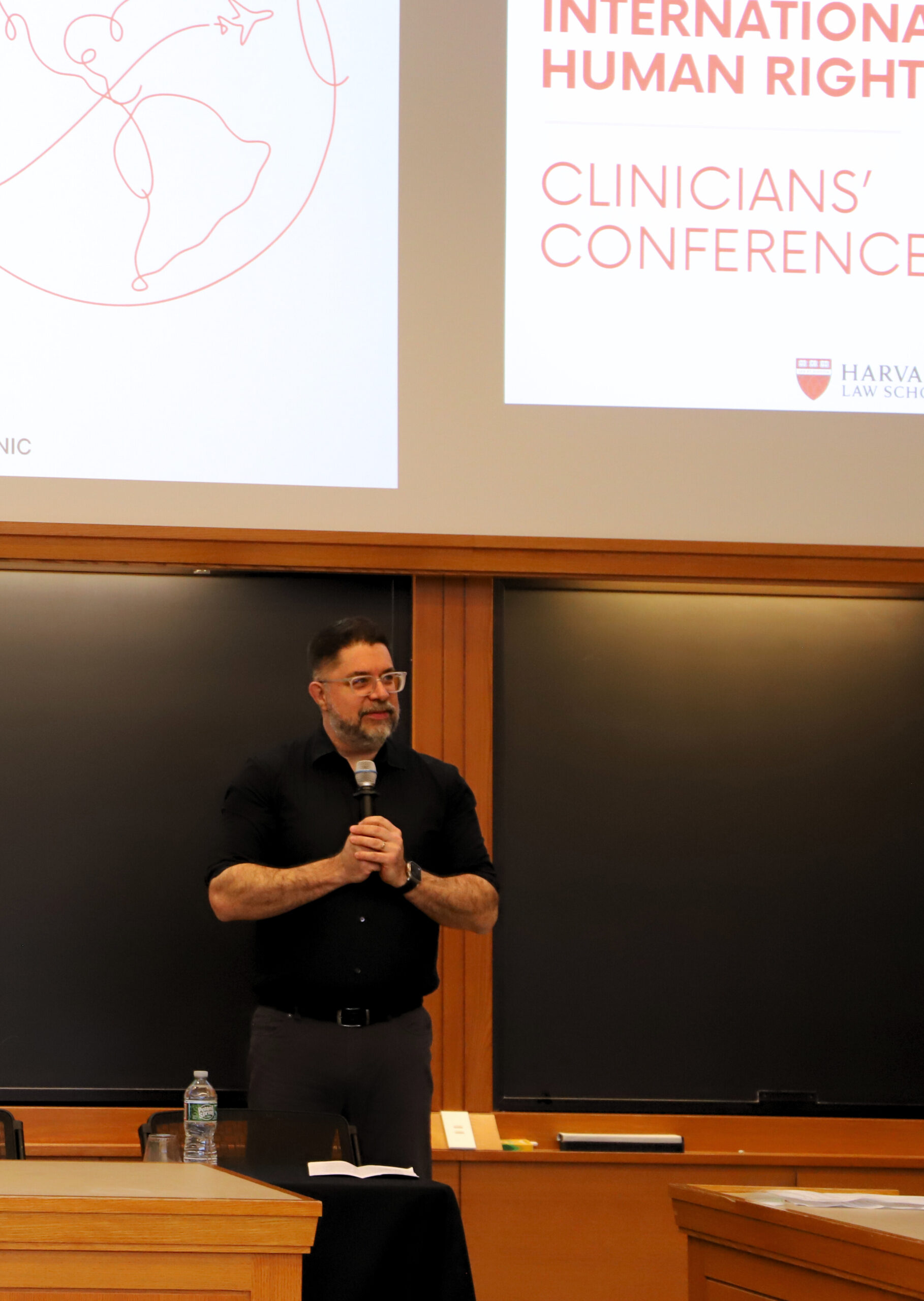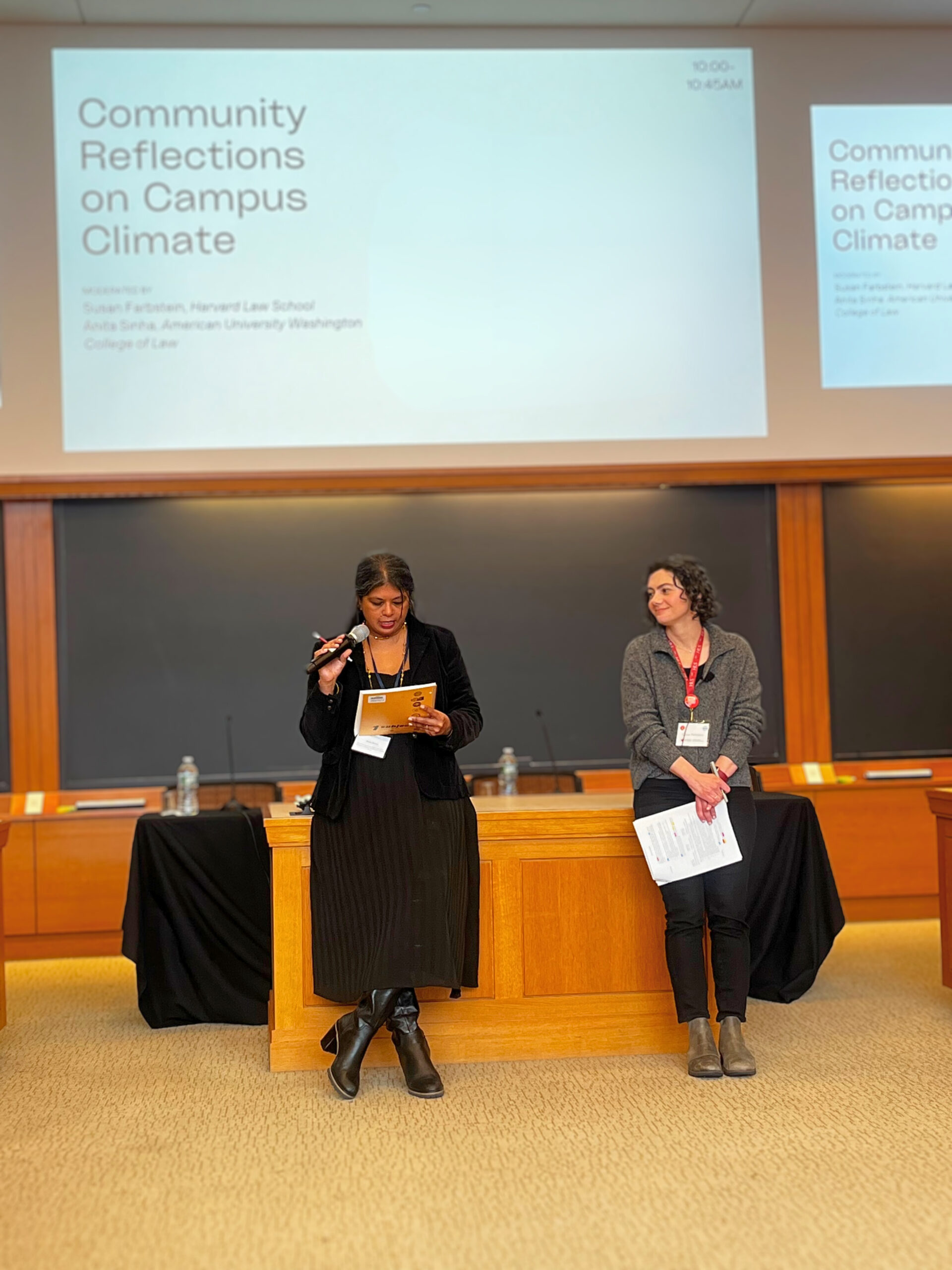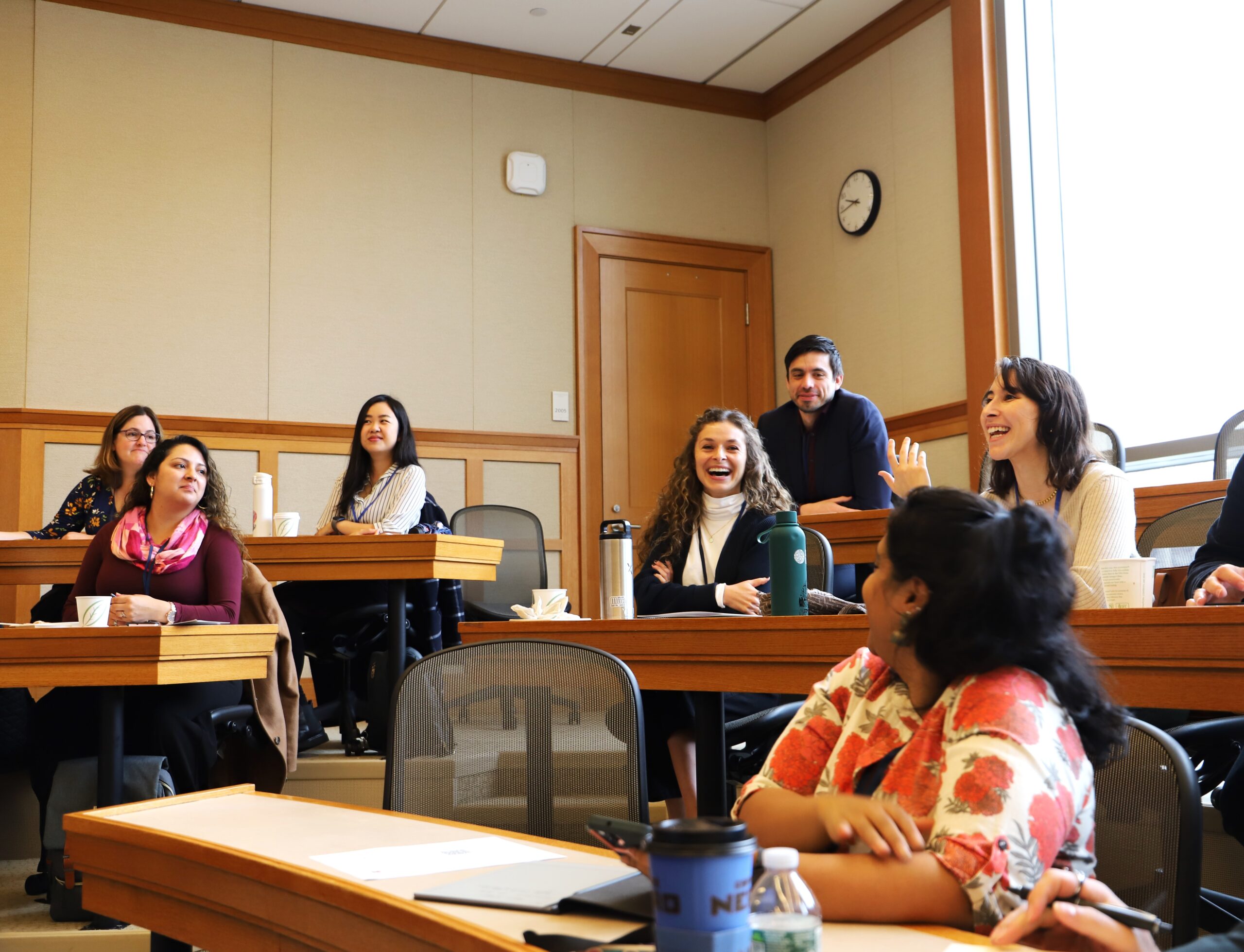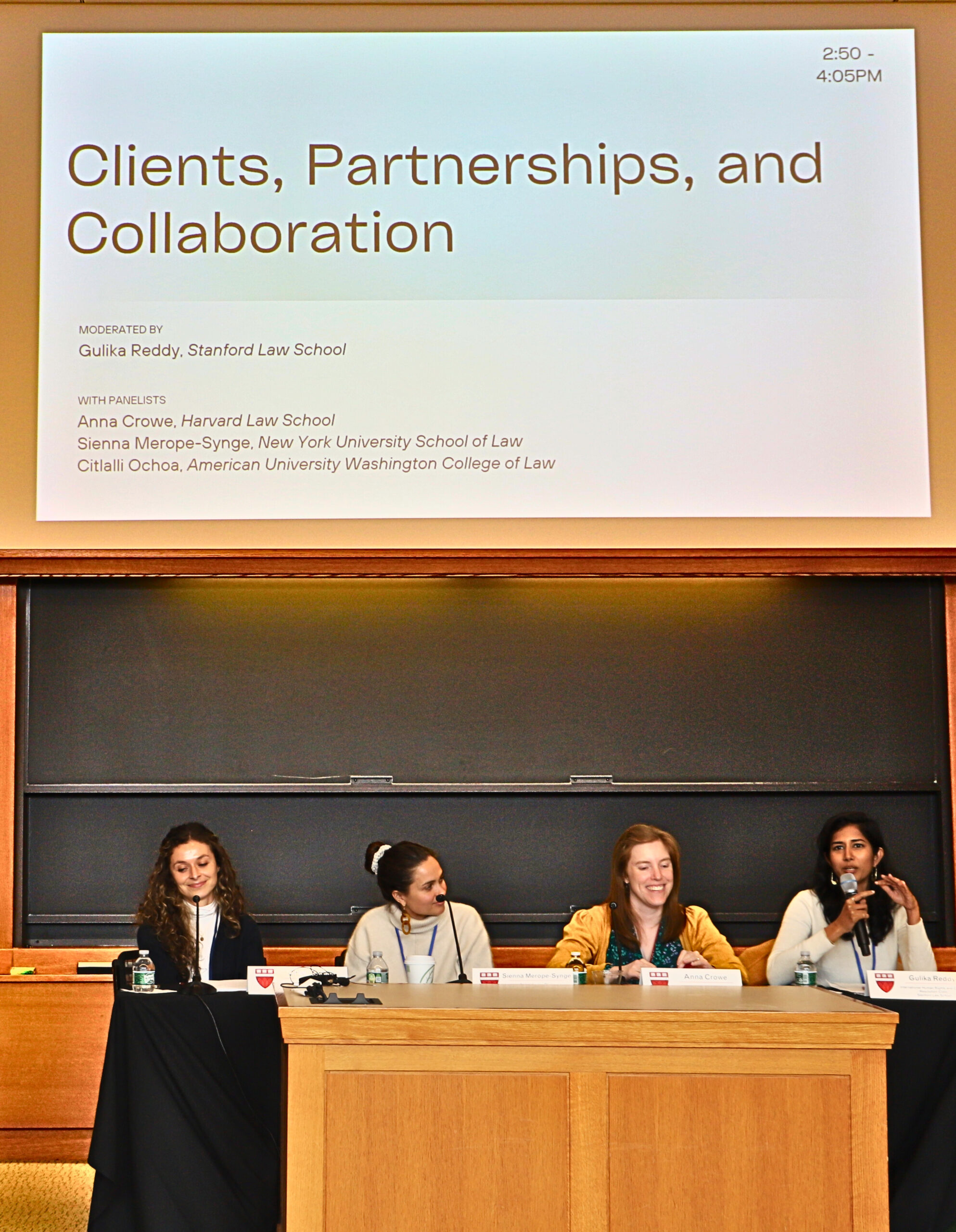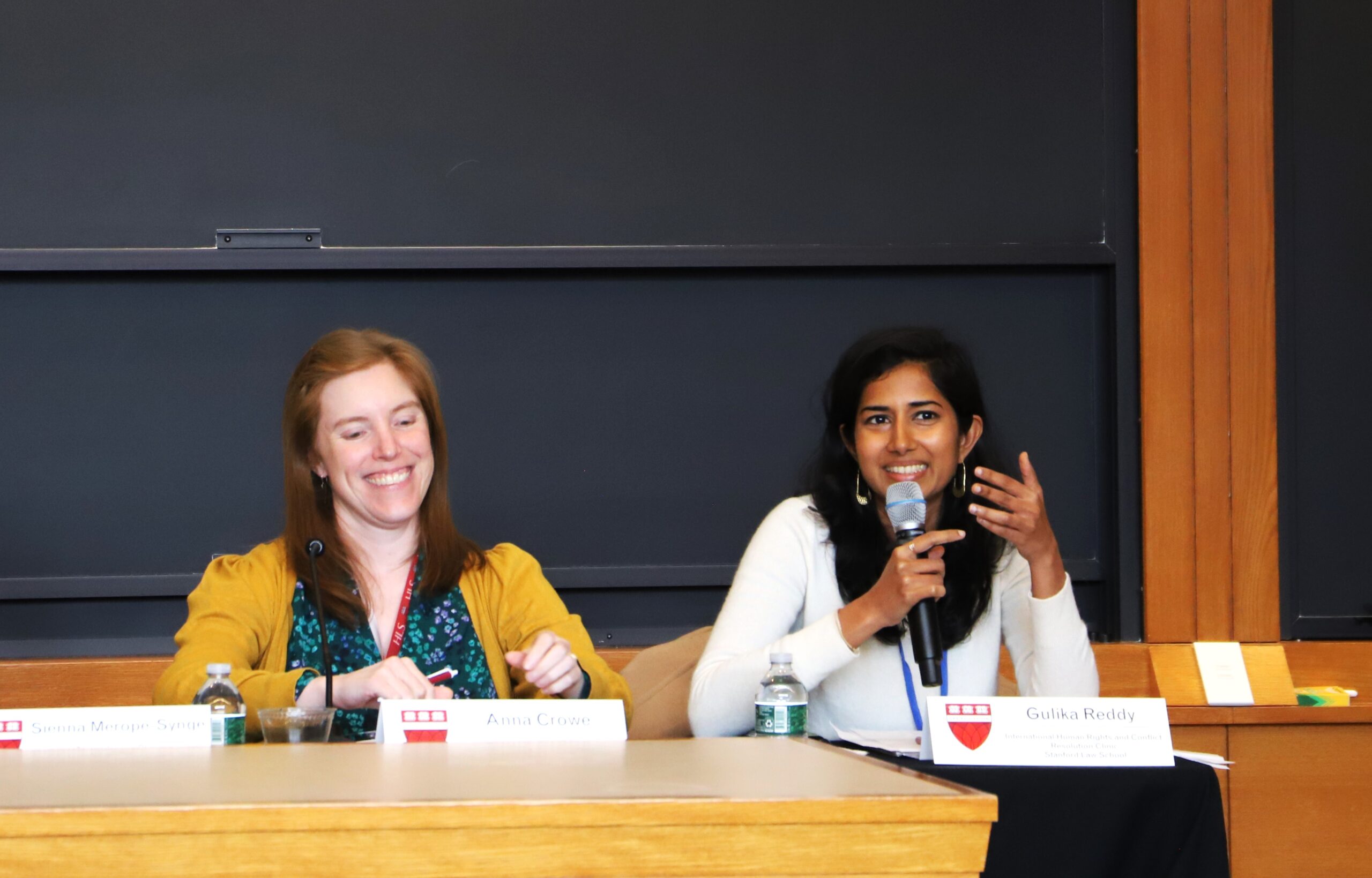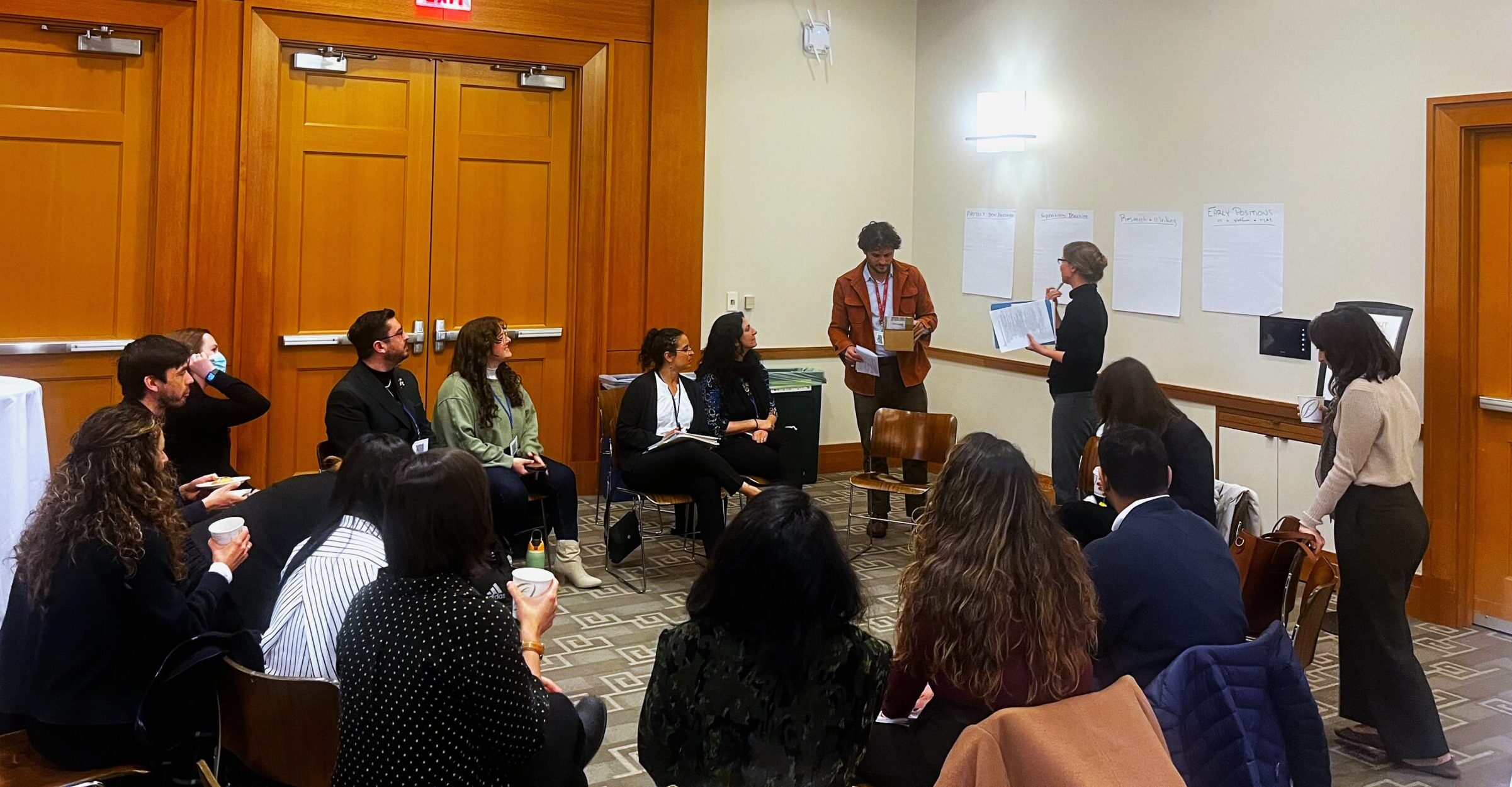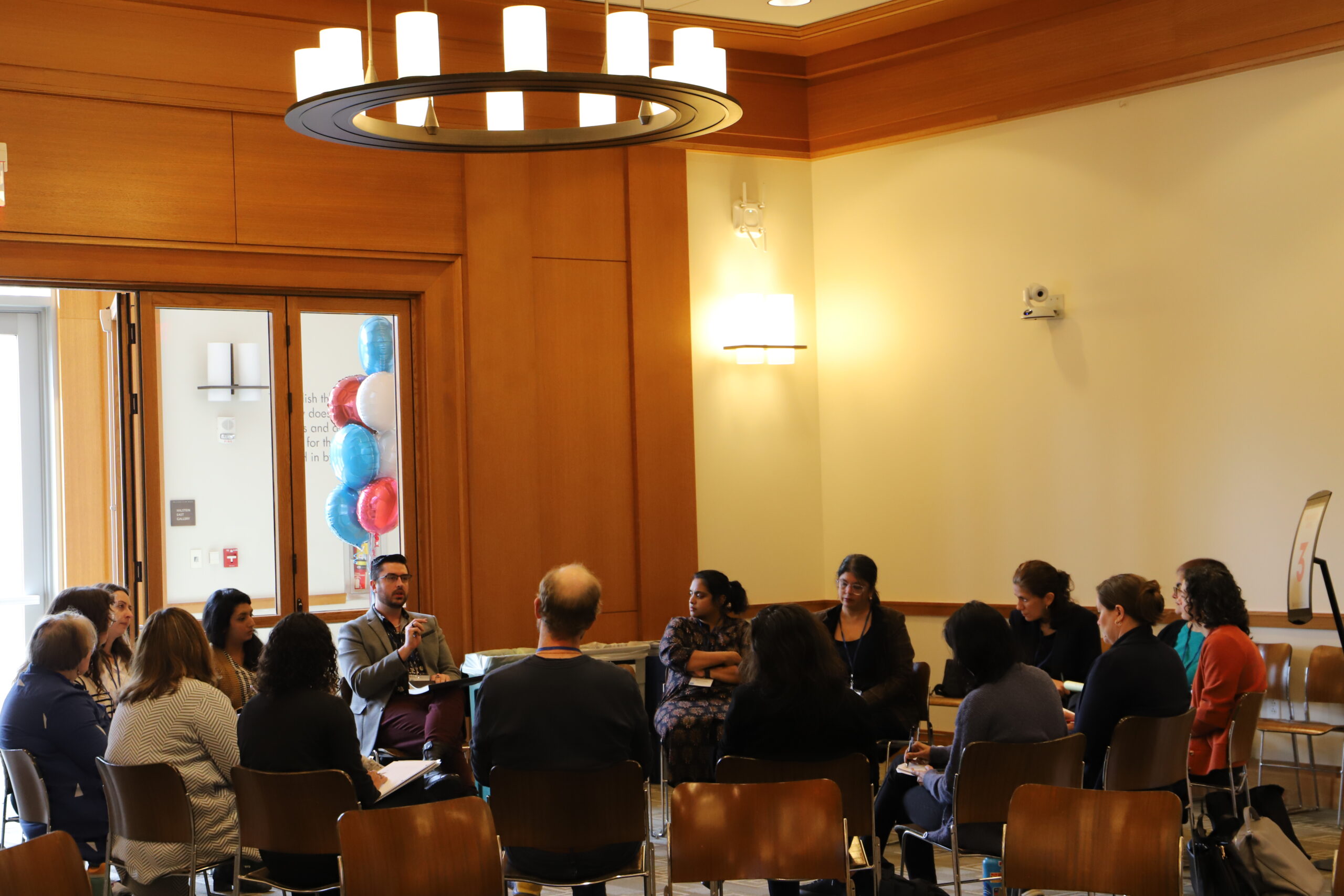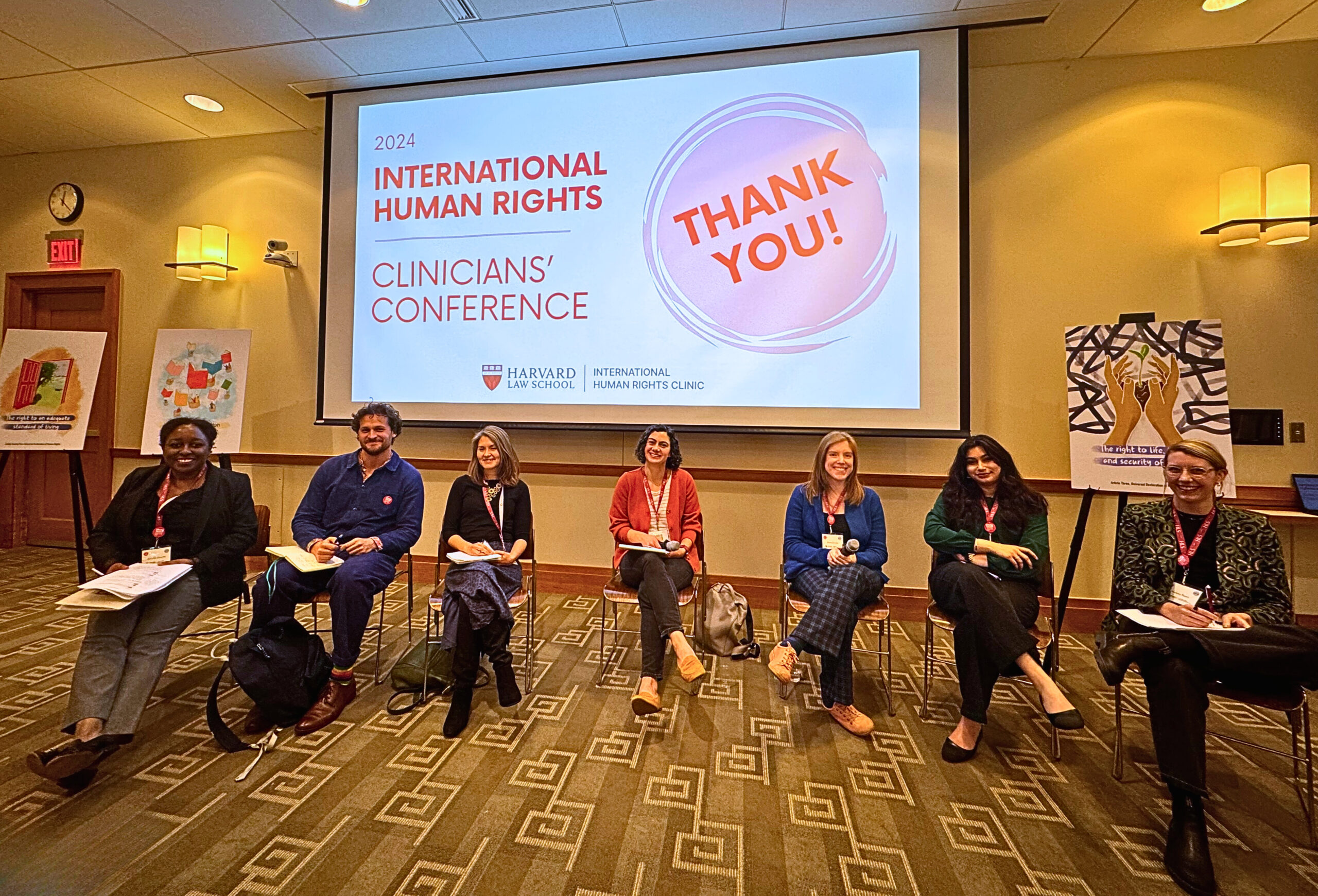At the end of April, dozens of human rights clinicians gathered in Cambridge to share ideas, forge friendships, and build resilience and hope in their work.
For many of the country’s leading human rights practitioners, the 2024 International Human Rights Clinicians’ Conference, which Harvard Law School hosted from April 19-21, was a chance to learn from panel discussions and workshops, as well as meet and socialize with colleagues. The annual conference brought together 66 clinicians from 39 law schools, including several from outside of the United States. Nearly half of this year’s participants were first- or second-time attendees.
“After a difficult year on so many campuses, we were incredibly grateful to be in conversation with our peers across the human rights clinical community,” said Susan Farbstein, Clinical Professor of Law and Director of Harvard’s International Human Rights Clinic. “We’re all trying to do our best work—creative, meaningful, thoughtful—with our students and partners. The weekend reminded me of the power of being in solidarity with such a dedicated group of practitioners, and I came away feeling energized and inspired to keep pushing forward.”
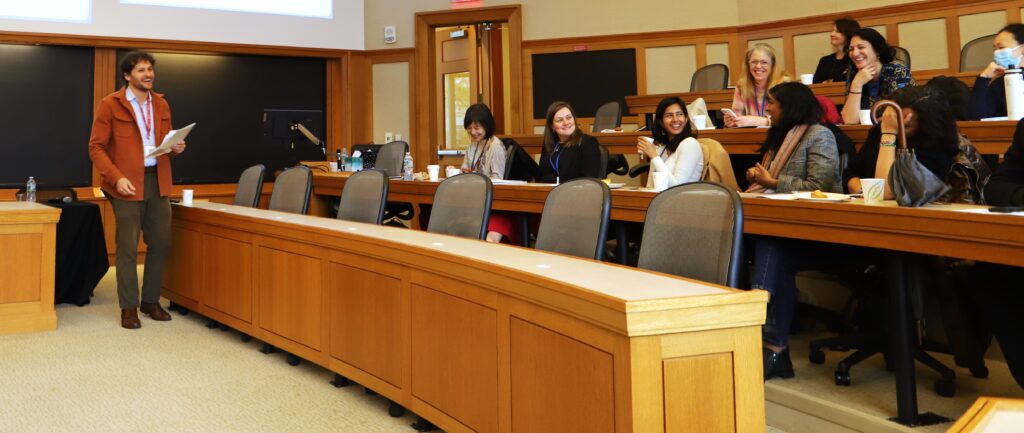
Teaching Hope and Resilience in Human Rights Clinics
The conference opened with a panel on how clinicians can best teach students the resilience and self-care skills necessary to build sustainable human rights careers, including by integrating these concepts into clinical projects and seminars. One panelist emphasized looking to history as a guide to contextualize current challenges, even those that might appear intractable. She recalled that the human rights movement has a long tradition of drawing on hope and perseverance, particularly to craft seemingly unattainable solutions in places like apartheid South Africa or Northern Ireland during The Troubles.
Other speakers noted that human rights advocates experience high rates of posttraumatic stress as well as feelings of isolation and burnout. Students, too, can develop stress reactions or secondary trauma. Panelists encouraged clinicians to consider “the student as a whole”, including their past experiences and intersecting identities, when collaborating with partner organizations and clients.
This process involves moving away from a “one size fits all” approach and integrating discussions and check-ins about self-care into all aspects of clinical pedagogy, rather than siloing these topics into a single class or lesson plan. Other tips included adding self-care as an agenda item to student team meetings, and creating text chains or support groups among clinicians to promote accountability from a supportive community.
A common theme emerged: attitudes and practices to cultivate hope, resilience, and care are vital skills that both clinicians and students must continue to develop and prioritize.
Developing Pedagogy and Professional Networks
Other sessions encouraged clinicians to learn from each other in small group settings. At a skill building level, a series of 20-minute “mini-lessons” focused on topics ranging from advocacy before United Nations committees, to shaping student ownership of clinical projects, to good practices for incorporating anti-racist frameworks into clinical teaching. In one session on media advocacy, clinicians explained how students can learn to reframe complicated legal issues into accessible op-eds and press releases for a general audience. Another session problematized the concept of leadership, which is often prized in law schools but may prioritize certain skills and styles of lawyering while reinforcing problematic hierarchies and stereotypes.
Smaller breakout groups allowed clinicians from different law schools to learn from each other’s experiences teaching, supervising students, developing projects, and making career decisions.
For example, a cohort of new clinicians – those with less than three years of experience – discussed how to make time to balance teaching and their own research and writing interests, along with tips for navigating the law teaching market. “Interacting with fellow new [clinicians] illuminated the expansive array of clinical teaching models and the numerous avenues through which we, as young educators, can nurture our own professional development,” said Melina De Bona, an Adjunct Professor of Clinical Law and Litigation Associate at NYU Law’s Center for Human Rights and Global Justice.
In a panel on partnerships and collaboration, clinicians explored how they build and sustain relationships with clients and non-governmental partners. Anna Crowe, the Associate Director of the Harvard clinic, observed, “While we often talk within our clinic about the different modes of collaboration, sharing experiences and hearing from colleagues across the country gave us all new insights into how to approach partnerships to best serve our dual goals of teaching our students and serving our partners.”
A final set of sessions centered around specific areas of human rights practice, including climate change and the environment, human rights in the United States, building solidarity with human rights defenders, technology and human rights, and human rights in Israel/Palestine.
“I find sometimes that really large conferences are a bit impenetrable, or even off-putting, because it’s hard to get to know one another and share information from practice and from daily life,” said Petra Molnar, the Associate Director of the Refugee Law Lab at York University and a Faculty Associate at the Berkman Klein Center for Internet and Society. “But being able to have breakout sessions that are thematically oriented was such a great way of learning from each other that’s a little bit less anonymous and a little bit more personal.”
Several participants shared how their clinics have been working on human rights and the protection of civilians related to the ongoing armed conflict in Gaza. During that conversation, clinicians highlighted projects related to corporate accountability, sanctions, protection of human rights defenders, and analysis of violations of international humanitarian law in the context of Palestine/Israel. Another group discussed the risks and benefits of working solidarity with human rights defenders who are at the frontlines, often at great personal risk. Practitioners shared strategies for considering how to engage with advocates and organizations in unstable and unpredictable environments, from Mexico to Haiti to India.
Amid busy schedules and demanding projects, the conference offered participants the chance to pause, reflect, and reconnect with colleagues who are navigating similar challenges. As they left Cambridge and returned home, many clinicians noted that they felt less alone after a weekend spent building relationships and fostering hope.
Paras Shah (@pshah518) is a Legal Editor at Just Security and an Adjunct Professor of Law at NYU. He is a graduate of the University of California, Berkeley and Harvard Law School where he spent two years in the International Human Rights Clinic and served as an Executive Article Editor for the Harvard Human Rights Journal.
